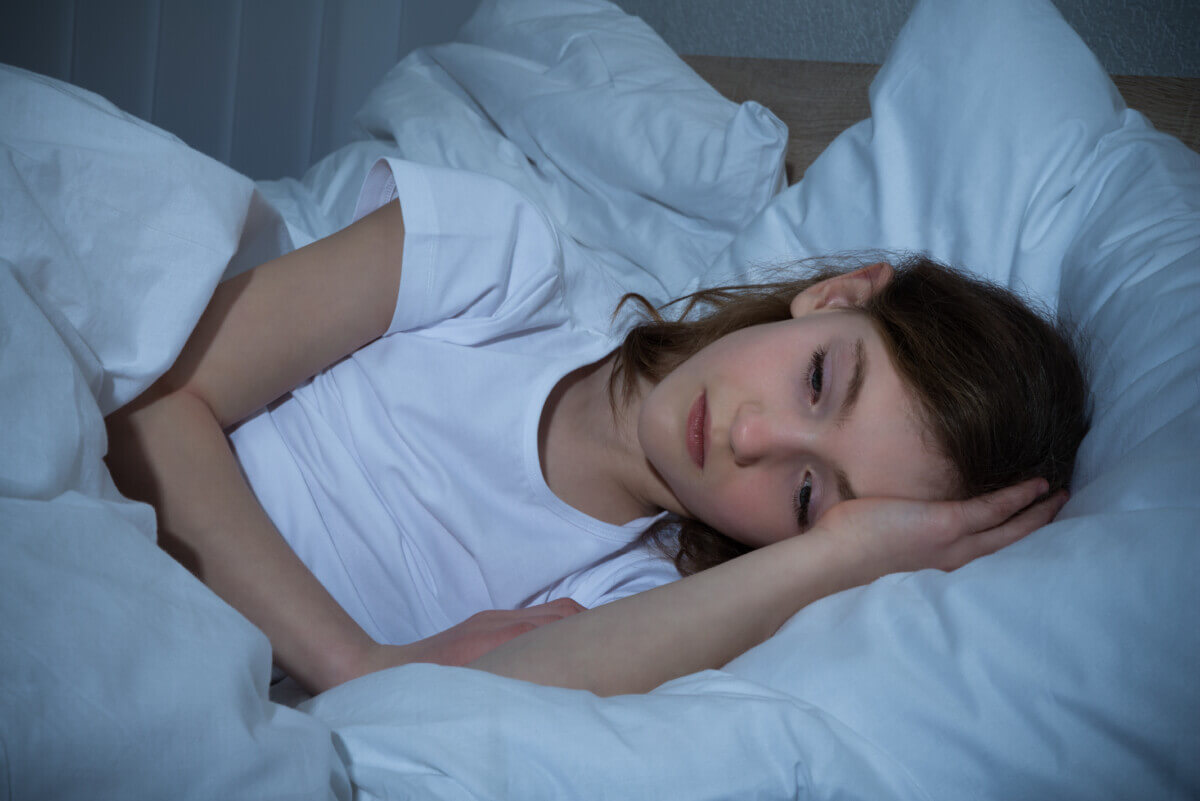
(Photo by Andrey_Popov on Shutterstock)
ANN ARBOR, Mich. — For parents of young children, few things are as precious as a good night's sleep — both for their child and for themselves. Yet many parents struggle with getting their little ones to bed and ensuring they get the rest they need. A recent poll from the C.S. Mott Children's Hospital sheds light on the sleep habits and challenges of children aged 1-6 years, offering valuable insights for weary parents. Perhaps of greatest concern is that nearly 1 in 4 young kids struggle with anxiety at bedtime.
The poll, which surveyed a national sample of 781 parents of kids under 7, found that the vast majority (90%) have a bedtime routine for their child. These routines often include rituals like brushing teeth (90%), reading bedtime stories (67%), taking a bath (54%), having a drink of water (47%) or a snack (23%), turning off devices (41%), praying (31%), and talking about their day (23%). Many children also have specific bedtime habits, such as holding a blanket or stuffed animal (47%), sucking a pacifier (7%), or sucking their thumb or fingers (6%).
When it comes to sleeping arrangements, the poll found that 47% of children sleep in their own bedroom, while 21% share a bedroom with siblings. However, 22% of children sleep in their parents' bedroom, and another 10% start the night in their own room but end up with their parents at some point. As for the sleep environment itself, 61% of parents leave a night light on, 14% crack the door to let some light in, and 25% keep the room dark. While 39% of parents keep the room quiet, others opt for white noise (33%), soft music (15%), or even a video or TV show (13%) to help their child drift off.
Interestingly, the poll found that parents' presence at bedtime varies, with 31% saying they often stay in the room until their child falls asleep and another 19% doing so sometimes. This practice was more common among parents who reported difficulty getting their child to bed, along with being less likely to have a bedtime routine and more likely to leave a video or TV show on.
Indeed, bedtime struggles are not uncommon, with 27% of parents describing the process of getting their child to bed as difficult. The poll identified several factors that can delay a child's sleep, including staying up to play (reported by 65% of parents), noise from other rooms (43%), and the child being worried or anxious (23%). Once asleep, some children wake up upset or crying (36%), move to their parents' bed (43%), or insist that a parent sleep in their room (31%).
In an effort to help their children sleep, 19% of parents said they often or sometimes give their child melatonin, a hormone that regulates sleep. Another 15% have talked to their child's healthcare provider about sleep problems.
Improving A Child's Sleeping Habits Is Essential
These findings underscore the profound impact that sleep (or lack thereof) can have on a child's well-being and development. As the report notes, sleep affects a child's mood, brain development, and risk for problems like obesity. Poor sleep quality can also take a toll on parents' own rest and health.
The poll offers several key takeaways for parents looking to improve their child's sleep. First and foremost, having a consistent bedtime routine is crucial. As the report explains, “A bedtime routine signals to the child that it's time to slow down; the familiar pattern helps them feel comfortable and secure.” This predictable wind-down also provides valuable one-on-one time for the child and parent.
The sleep environment itself is another important factor. Ideally, children should have their own bed in a quiet room without too much noise from other family members. While many parents use a nightlight or crack the door, the report suggests that a completely dark room is best for healthy sleep, and encourages parents to gradually help children adjust to sleeping in the dark. As for white noise machines or apps, the report cautions that the volume should be no more than 50 decibels and the device placed at least 7 feet from the child's bed to protect their hearing.
The finding that one in five parents have given their young child melatonin raises some concerns. As the report notes, most melatonin products marketed for children have not been rigorously tested for safety and effectiveness, and their long-term impacts are unknown. The poll advises parents considering melatonin to consult with their child's pediatrician first, start with the lowest dose possible, and keep the product out of the child's reach.
Don't Stay In Their Room
For children who become anxious or worried at bedtime, the poll suggests allowing extra time for the child to talk about their day and express their concerns. While it may be tempting for parents to stay in the room until the child falls asleep, the report recommends instead offering to check on them every few minutes. This approach acknowledges the child's fears and provides reassurance, but still maintains a calm sleep environment.
Nighttime wake-ups can be particularly challenging, especially for children prone to vivid dreams or nightmares. The poll advises parents to decide on a consistent approach, such as returning the child to their own bed or allowing them to stay in the parents' room, and sticking with it to help the child adjust. Limiting exposure to scary content before bed, maintaining a positive bedtime routine, and ensuring the child doesn't get overtired can also help reduce the frequency of nightmares.
Ultimately, while there's no one-size-fits-all solution to children's sleep challenges, the poll offers valuable guidance grounded in real parents' experiences.
“Our report reinforces the common struggle of getting young children to sleep. When this transition to bedtime becomes a nightly conflict, some parents may fall into habits that work in the moment but could set them up for more sleep issues down the road,” says Mott Poll co-director Sarah Clark, in a statement. “Establishing a consistent bedtime routine is crucial. When children don’t get enough rest, it can impact their physical development, emotional regulation and behavior.”










